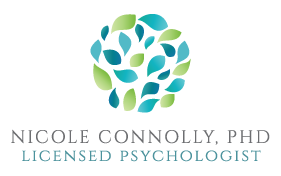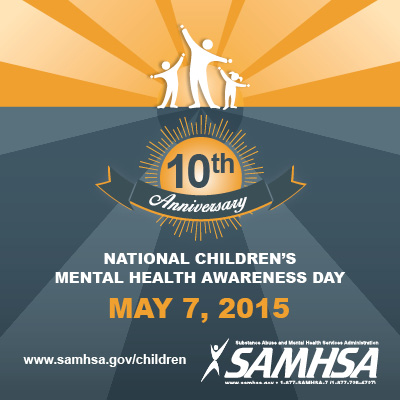Children's Mental Health Awareness Day - Fight the Stigma!
Today is National Children's Mental Health Awareness Day - the 10th anniversary of this awareness day, in fact. It's part of an overall push in the month of May to boost awareness of mental health issues in this country and help reduce the stigma surrounding psychological concerns and mental health treatment.
Why is mental health awareness important?
Did you know that around 46% of teens ages 13 to 18 have met criteria for a mental health issue in their lifetime, according to data from the National Institute for Mental Health? About 20% have had what they classified as a "severe" disorder - i.e. a mental illness that creates significant distress and substantially interferes with daily life.
If we were to look at just the last 12 months, we would expect to see that approximately 13 percent of children ages 8 to 15 would have been suffering from some sort of significant mental health problem, according to data from the CDC. Attention deficit/hyperactivity disorder (ADHD) and mood disorders (e.g. depression) were the most common in the CDC study. Studies with teens and adults suggest that anxiety is also one of the most common mental health issues.
And the number of children who receive therapy is even more concerning:
For me, the most sobering statistic is the estimated 50% of children with an identifiable psychological disorder who have received mental health services for that issue. This means that up to half of children struggling with a significant mental health issue are not receiving help for their problem.The situation is even worse for children who are struggling with an anxiety disorder. Of those children, only about 20-30% receive therapy, medication, or other mental health services to address their problems.
Why aren't kids getting the help they need?
Unfortunately, stigma about seeking mental health services and concern about getting "a label" can interfere with parents seeking help for their kids. In fact, stigma around mental health services for children is just as high as it is for adults, if not higher.
Lack of knowledge or awareness about mental health issues - both from parents and from other adults in a position to provide suggestions or recommendations
Downplaying the significance of certain behaviors
Difficulty finding and accessing care
Skepticism around the usefulness of therapy
Concern about their child having a "label" that will lead to discrimination
Worry about being pressured to medicate the child
What can we do to change the stigma?
Anyone and everyone can play a role in changing the stigma around mental health services. Change in attitudes starts small - sharing posts about mental health topics on social media, participating in awareness events in your community, speaking openly with others about issues related to mental health or your own family's experiences.
It's only through education and increased awareness that we can shift attitudes.
For even more information about mental health issues in children, the following sites have great, easily accessible information:
Also, check out the other posts available on this site. And help build awareness by sharing posts like this on your own social media accounts. Every little bit helps!

